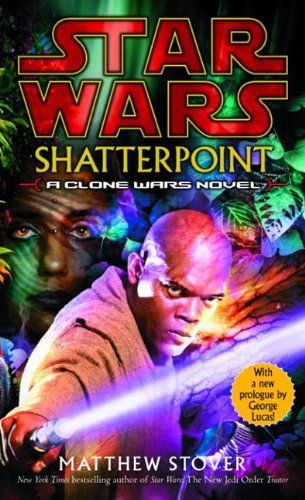
Shatterpoint: Star Wars Legends
In this essential Star Wars Legends novel, Mace Windu must journey to his long-forgotten homeworld to confront a terrifying mystery with dire personal consequences. The jungle planet of Haruun Kal, homeworld of the legendary Jedi Master Mace Windu, has become a battleground in the increasing hostilities between the Republic and the renegade Separatist movement. The Jedi Council has sent Depa Billaba—Mace’s former Padawan and fellow Council member—to Haruun Kal to train the local tribesmen as a guerrilla resistance force. But now the Separatists have pulled back, and Depa has not returned. The only clue to her disappearance is a cryptic recording left at the scene of a brutal massacre: a recording that hints of madness and murder, and the darkness in the jungle . . . a recording in Depa’s own voice. Mace Windu trained Depa. Only he can find her. Only he can learn what has changed her. Only he can stop her. He will leave behind the Republic he serves, the civilization he believes in, everything but his passion for peace and his devotion to his former Padawan. And he will learn the terrible price that must be paid when keepers of the peace are forced to make war. . . .
Reviews
Katharina Hoffmann@ahobbitsbooks